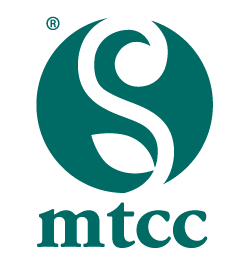1. Vote for Best Statement
Sustainable timber procurement policies may create inefficiencies and bureaucratic challenges.
Implement a voluntary certification program that encourages local suppliers to adhere to sustainable forestry practices. This approach promotes responsible sourcing while allowing flexibility and fostering community engagement in environmental stewardship.
Going green with public projects in Malaysia enforces environmental conservation nationwide and preserves resources.
By prioritising sustainable public projects through applying environmentally friendly practices such as ethical deforestation, Malaysia can maintain natural ecosystems, conserve resources, and achieve a balance between development and ecological protection, hence corresponding with global environmental objectives.
Malaysia should prioritize economic growth over mandatory timber policies.
We should prioritize economic growth and support businesses to ensure sustainable development. Instead of enforcing a mandatory timber procurement policy, we can promote voluntary eco-friendly practices that encourage innovation while allowing flexibility for projects to progress without unnecessary constraints.
Foreign investors and NGOs prefer sustainable public projects in Malaysia, while boycotting unsustainable practices.
By adopting a mandatory sustainable Timber Procurement Policy for all public projects, the risk of the Malaysian government receiving backlash that could result in boycotts from foreign NGOs are reduced and it attracts foreign investors to Malaysian public projects, enhancing ethical practices and publicity, while fostering direct investment and infrastructure development for greener outcomes in the country.
Skirting the blame to timber production is evading the primary players affecting Malaysia's forests.
Implement stricter regulations on palm oil producers to enforce accountability. This approach would help mitigate deforestation by compelling corporations to adhere to sustainable practices, ultimately benefiting both the environment and local communities affected by their operations.
Unsustainable timber sourcing in Malaysia causes environmental degradation and harms local communities.
Mandatory sustainable timber sourcing addresses unsustainable practices by creating jobs, stimulating local economies, and improving community infrastructure, thereby mitigating environmental degradation and enhancing the well-being of local communities reliant on forestry in Malaysia.
The inefficiency of building regulations leads to increased emissions and costs.
Instead, encourage sustainable timber usage in public projects through voluntary certification, local sourcing incentives, educational programs, innovation support, partnerships, and pilot projects. These strategies promote responsible sourcing while maintaining project flexibility and fostering community engagement without enforcing mandatory procurement policies.
Public projects must prioritize health; ineffective timber policies harm sustainability
Public projects, and national development cannot come at the cost of national health, while a timber policy does not stand paramount it is a stepping stone to better environmental governance in the future which is invaluable to public health, and that should be the ultimate public project.
Sustainable timber procurement policy could prevent an unbalanced timber industry ecosystem and illegal logging.
Bodies like MTCS and MTCC have already promoted the policies, which I believe the government should work with closely to govern a mandatory push by establishing clear sourcing guidelines. This promotes responsible forestry practices, reduces illegal activities, and encourages market demand for certified timber, fostering a healthier forest ecosystem.
Ineffectiveness of mandatory sustainable timber procurement policy adoption for all public projects in Malaysia
Local timber SMEs face challenges transitioning to sustainable practices due to high costs and limited certified timber, leading to greenwashing and undermining certification credibility. Instead, implementing financial incentives or grants can help alleviate costs and encourage sustainable timber sourcing among these companies.















































